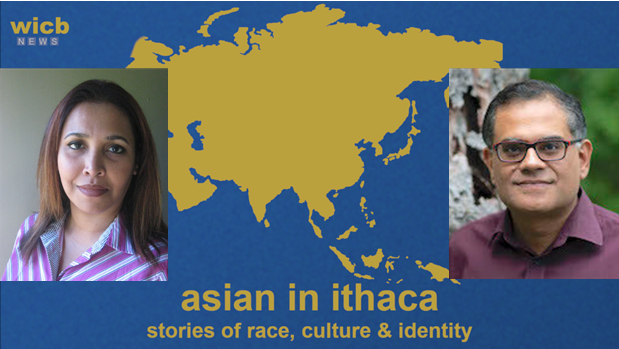On a recent episode of the WCIB news podcast “Asian in Ithaca: Stories of Race, Culture & Identity,” PCIM Director Raza Rumi told his story of working in, and being forced to flee, Pakistan. Sonali Samarasinghe, a journalist, human rights lawyer, and diplomat, recounted the events that drove her from her native Siri Lanka.
In Pakistan, Rumi was a well-known broadcaster, editor, columnist, and policy consultant who spoke at length against religious extremism. “I was condemning it every day on television, and also holding different authorities to account,” he said.
Rumi also advocated for peace with India—he stressed this is “not a popular opinion.” In 2014, the car he was riding in took fire from automatic weapons, killing his driver, who was a family friend. The attackers were later found to be a militant group affiliated with the Taliban. Rumi fled to Washington, where he held several positions, before accepting employment at Cornell and Ithaca College through Ithaca City of Asylum.
In 2018, he became the director of PCIM. “I still get those threats and I still get those hate messages,” he said, but “I am very much engaged back home. I still write for publications, I was still editing a newspaper in Pakistan. I didn’t stop my work.”
Samarasinghe worked for a newspaper that reported on government corruption and was critical of a 26-year civil war that cost 80,000–100,000 lives. “The government saw us as traitors to the nation for speaking truth to power,” she recalled.
In 2009, she married Lasantha Wickrematunge, her newspaper’s editor. Weeks later, a group of men murdered him on his way to work. It wasn’t long until Samarasinghe received death threats of her own.
She fled to the U.S. and in 2012 accepted an offer to teach at Ithaca College through ICOA, which she said provided not just housing assistance and a two-year paid job, but “professional, personal, and emotional support.”

